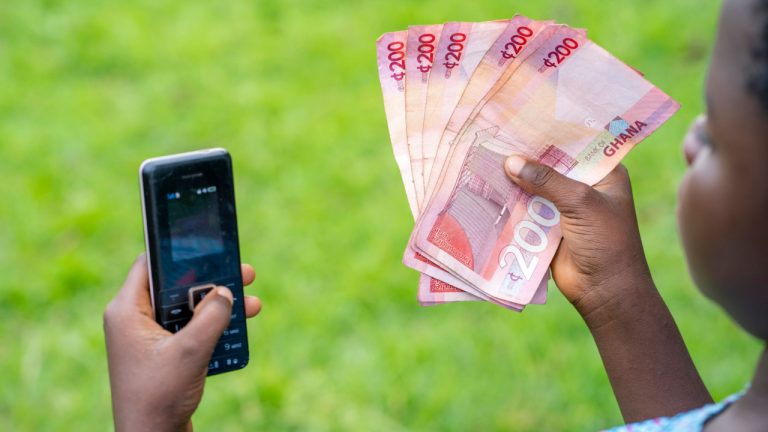World’s Worst Performing Currency, the Cedi, Reverses Gains — Economist Steve Hanke Says Ghana Inflation Now Over 140%
Publikováno: 10.11.2022
 Just days after registering marginal gains against the U.S. dollar, the Ghanaian currency — the cedi — slipped to C14:$1 versus the U.S. dollar on the foreign exchange parallel market on Nov. 7. The cedi’s reversal is said to have dented the currency’s recovery prospects. On the other hand, Ghana’s former president John Mahama and […]
Just days after registering marginal gains against the U.S. dollar, the Ghanaian currency — the cedi — slipped to C14:$1 versus the U.S. dollar on the foreign exchange parallel market on Nov. 7. The cedi’s reversal is said to have dented the currency’s recovery prospects. On the other hand, Ghana’s former president John Mahama and […]

Just days after registering marginal gains against the U.S. dollar, the Ghanaian currency — the cedi — slipped to C14:$1 versus the U.S. dollar on the foreign exchange parallel market on Nov. 7. The cedi’s reversal is said to have dented the currency’s recovery prospects. On the other hand, Ghana’s former president John Mahama and economist Steve Hanke have suggested that the country’s inflation rate is much higher than the 37.2% which was recorded in September.
Cedi’s Interbank Exchange Rate Unchanged
Just days after it marginally recovered from an all-time low, the Ghanaian currency’s exchange rate versus the U.S. dollar slipped beyond the 14:1 mark on Nov. 7, a report has said. According to the report, the cedi’s fall from C13.95 to C14.20 per dollar on the forex parallel market suggested that the currency’s much-talked-about recovery versus the greenback is unlikely to happen any time soon.
Bank of Ghana Exchange Rates pic.twitter.com/oognH3AM42
— Bank of Ghana (@thebankofghana) November 4, 2022
Despite its latest fall versus major global currencies on the parallel market, the Bank of Ghana (BOG)’s Nov. 8 exchange rate data showed the cedi was trading at just above 13 units for every dollar. In fact, since the BOG’s Oct. 27 update, the cedi’s interbank exchange rate versus the dollar has remained largely unchanged.
Ghana’s Real Inflation Rate
After starting the year trading above 6:1, the cedi, according to the BOG, “has depreciated by 37.5 per cent, 24.1 per cent, and 27.5 per cent against the US dollar, the pound, and Euro, respectively.” The BOG blames higher crude oil prices, the “non-roll over of maturing bonds by non-resident investors,” as well as policy reversals, for the cedi’s woes.
The cedi depreciation has, in turn, seen the country’s official inflation rate surge past 37% in September. Despite this being the country’s highest inflation rate in two decades, President Nana Akufo-Addo was recently quoted claiming that Ghana’s rate is still better than that of Togo and Senegal.
However, former Ghanaian president John Mahama and Steve Hanke, a professor of applied economics at Johns Hopkins University, have cast doubts over the genuineness of Ghana’s official inflation rate figures. While Mahama suggested that Ghana’s food inflation is around 122%, Hanke placed Ghana’s inflation rate at 142%, the world’s third-highest rate.
According to the economics professor’s latest inflation dashboard, the only countries whose inflation rates surpass that of Ghana are Zimbabwe (417%) and Cuba (151%).
Register your email here to get a weekly update on African news sent to your inbox:
What are your thoughts on this story? Let us know what you think in the comments section below.